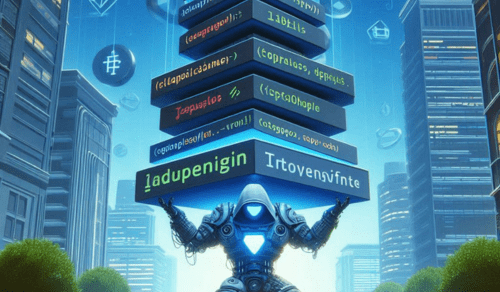
Integrating Cloud Services into Your Full Stack Applications: AWS, Azure, and Google Cloud
In the modern landscape of web development, cloud services have become integral to building scalable, efficient, and flexible applications. Full stack developers are increasingly required to integrate cloud platforms like AWS, Azure, and Google Cloud into their projects, leveraging these services for storage, hosting, databases, and even serverless computing. With the growing complexity of applications, cloud services offer solutions that streamline workflows and provide seamless infrastructure management. Aspiring developers looking to gain hands-on experience with these cloud platforms are turning to educational programs like a full stack developer course in Hyderabad to learn how to effectively incorporate cloud technologies into their development practices.
Why Cloud Services are Essential for Full Stack Development
Cloud computing has transformed the way full stack applications are developed, deployed, and maintained. Traditionally, developers needed to manage physical servers, manually handle scaling, and deal with downtime issues, all of which added complexity and resource demands. Cloud services simplify this process by providing on-demand resources, flexible scaling, and highly reliable infrastructure.
AWS, Azure, and Google Cloud each offer a variety of tools and services that full stack developers can integrate into their applications, from databases and storage solutions to machine learning APIs and DevOps tools. These platforms also allow for automatic scaling, which makes sure that applications can handle varying levels of traffic without any manual intervention. Learning how to effectively use these cloud services is a key component of many comprehensive training programs, such as a full stack developer course.
Amazon Web Services (AWS) for Full Stack Developers
Amazon Web Services (AWS) is one of the most famous cloud platforms used by full stack developers due to its vast range of services and robust infrastructure. AWS offers services like Elastic Beanstalk, which allows developers to quickly deploy web applications without worrying about the underlying infrastructure. Additionally, AWS Lambda enables serverless computing, allowing developers to run code in response to events without provisioning or managing servers.
For full stack applications, AWS provides databases like Amazon RDS for relational data, and DynamoDB for NoSQL databases. These services integrate smoothly with front-end and back-end components, making AWS a go-to platform for developers who need scalable, high-performance applications. Many developers enhance their skills through a full stack developer course in Hyderabad that includes training on AWS fundamentals, helping them to learn how to configure, deploy, and maintain full stack applications in the AWS cloud environment.
Furthermore, AWS’s security features, such as Identity and Access Management (IAM), ensure that full stack applications are built with security in mind. Developers can set permissions for users and roles, safeguarding sensitive data and making sure compliance with industry standards. This level of control is critical for applications that handle large amounts of data or sensitive information, such as e-commerce platforms or financial systems.
Microsoft Azure: A Flexible Platform for Full Stack Development
Microsoft Azure is another powerful cloud platform that offers a suite of services ideal for full stack development. Azure provides comprehensive cloud solutions that cover everything from virtual machines and databases to serverless computing and machine learning. Its integration with other Microsoft products, such as Visual Studio Code and GitHub, makes it a popular choice for full stack developers who already use these tools in their workflows.
One of the standout features of Azure is its strong support for DevOps, enabling full stack developers to automate their application lifecycle, from development to deployment. Azure DevOps services help developers create pipelines, automate testing, and monitor the performance of their applications in real time. For those interested in mastering the integration of Azure in full stack applications, many training programs, such as a full stack developer course, cover the essentials of using Azure for cloud-based development, providing learners with practical, hands-on experience.
Azure also offers powerful database solutions, such as Azure SQL Database and Cosmos DB, which allow full stack developers to choose the right type of storage for their applications. Whether you’re building an enterprise-level system or a small startup project, Azure’s scalability ensures that you can adjust your infrastructure as your application grows.
Google Cloud: Simplifying Full Stack Development with AI and Machine Learning
Google Cloud is another top contender in the cloud services space, known for its robust infrastructure and advanced tools for artificial intelligence (AI) and machine learning (ML). Full stack developers can take advantage of Google Cloud’s APIs for natural language processing, vision, and translation, adding advanced functionality to their applications with minimal effort.
In addition to AI and ML capabilities, Google Cloud offers services like Google Kubernetes Engine (GKE), which helps developers manage containerized applications. GKE automates the deployment, scaling, and operations of Kubernetes, making it an excellent choice for full stack developers who want to manage microservices architectures efficiently.
For full stack applications that require powerful databases, Google Cloud offers Cloud SQL and Firestore, both of which integrate seamlessly with other services like Firebase, a prevalent platform for mobile and web app development. Firebase, combined with Google Cloud’s infrastructure, allows full stack developers to build highly scalable, real-time applications without needing to manage the back-end servers directly. Developers looking to upskill in this area can explore a full stack developer course in Hyderabad, which often includes training on Google Cloud and Firebase integration.
Benefits of Cloud Integration for Full Stack Developers
Integrating cloud services into full stack applications offers numerous benefits, including improved scalability, reduced maintenance, and faster deployment cycles. One of the most significant advantages is the ability to scale infrastructure based on demand. Cloud platforms like AWS, Azure, and Google Cloud allow developers to adjust resources in real time, ensuring that applications can manage traffic spikes without crashing.
Moreover, cloud services reduce the need for manual server management, freeing up developers to focus on building features and improving user experiences. Whether it’s using serverless functions to handle backend logic or leveraging cloud-based databases for efficient data storage, full stack developers can enhance their applications’ performance by incorporating cloud services.
Aspiring developers who want to specialize in cloud integration should consider enrolling in a full stack developer course that offers in-depth training on how to use AWS, Azure, or Google Cloud. These courses provide the practical knowledge and hands-on experience needed to confidently build and deploy full stack applications in the cloud.
Conclusion
The integration of cloud services into full stack development has become a crucial skill for modern developers. Platforms like AWS, Azure, and Google Cloud offer a range of tools and benefits that make it easier to develop, deploy, and scale full stack applications. Whether it’s leveraging serverless computing, managing databases, or incorporating AI functionalities, cloud platforms provide the flexibility and power that full stack applications require to thrive in today’s competitive environment.
For developers looking to gain a deeper knowledge of cloud integration, a full stack developer course in Hyderabad offers a complete curriculum that covers these essential platforms. Through practical, hands-on training, developers can learn how to seamlessly integrate cloud services into their full stack projects, positioning themselves for success in the ever-evolving field of web development.
Contact Us:
Name: ExcelR – Full Stack Developer Course in Hyderabad
Address: Unispace Building, 4th-floor Plot No.47 48,49, 2, Street Number 1, Patrika Nagar, Madhapur, Hyderabad, Telangana 500081.
Phone: 087924 83183



